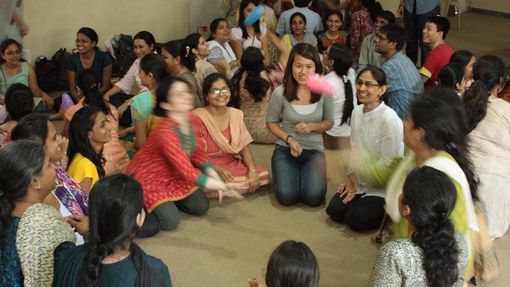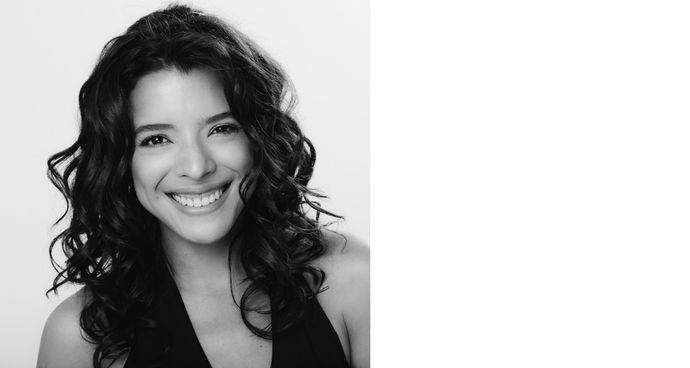
Today we are speaking with Isabella Londoño-Bejarano, a current student on the Applied Theatre, MA course about her work on The Tana Project.
Can you tell us what you have been working on?
I am working on The Tana Project, an applied theatre project that waits for two aspects: A play and a workshop, aimed for young people and adults (18+) belonging to the Asian Queer community. It was born out of the need to creatively apply our knowledge by creating a bridge with a community that is close to us.
The play’s script is based on a true story and reflects certain challenges that have been deeply rooted in the community’s journey and have become more evident in the context of the pandemic. This play aims to establish a dialogue with the spectator about the possibilities of being and how fluctuating relationships are under the magnifying glass of habits.
What defines us as identity and at the same time how many identities we inhabit are some of the questions that cross our protagonists during the two months they lived confined to the living room of a studio apartment that their course director lent them during the lockdown.
With a surrealist tone, the narrative is divided between everyday life and dreams, opening F’s inner universe to the viewer’s eyes, and will make visible the ghost of that teacher who unwittingly affects the way in which T previously developed his identity.
Where can we see Tana, the play?
We are at Bar Soho from 20 - 22 September and Camden People’s Theatre from 30 September - 1 October.
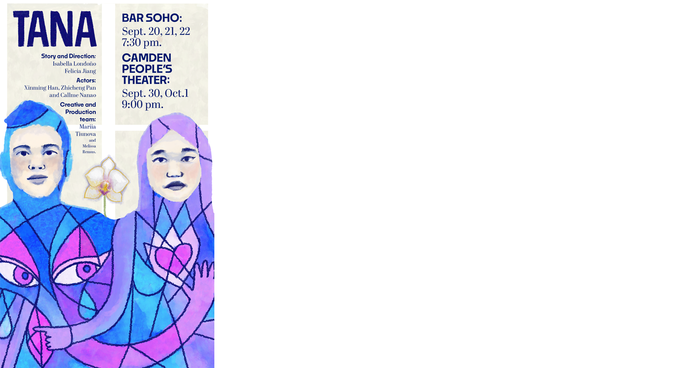
Did you get involved with writing this play through Central?
Yes, it was at the main entrance to Central where Felicia first told me her story. She told it without many emotional details, rather just events (it really seemed more like the plot than the story), and then she said she wanted to make a short film about it but she didn’t know how.
We then decided that the story worked best in an intimate theatrical atmosphere, and began to include other members of our programme as creative team and actors.
In a sense a collective creative space was created that aimed at serious work with a critical context that several members of the group were part of. It was for this reason that we proposed to our programme director to make this project our placement for our applied practice unit.
What Central students are involved and what are their roles?
The MA Applied Theatre students involved in the project are
- Co-writers and co-directors: Isabella Londono and Felicia Jiang
- Actors: Zhicheng Pan and Xinming Han
- Creative Associate: Mariia Tiunova
- Movement Advisor: Khushboo Shah
As well as vocal coach: Graham D’Souza, a current student on MFA Voice Studies: Teaching and Coaching.
What made you want to get involved?
I don’t know what motivated me first, if it was my need to leave aside so much theory from my studies, or if the story had a good possibility. No awareness that the work was autobiographical crossed my mind at that moment. Just the fact that in Colombia I already had a career in film and television as well as in playwriting and, unlike Felicia, I knew how to write a screenplay.
I think I mulled it over for a few days, then I proposed to Felicia that the story worked better for theatre, given its intimate nature and the surreal tone. Felicia was enthusiastic about the idea and accepted it with some trepidation: she had never done theatre before. In Colombia, on the other hand, I already had a long career in theatre. She had a history, I had experience. That’s how our partnership was founded, in a “call and response” dynamic (Cohen-Cruz, 2010).
Then we met to write. The meetings consisted of small workshops that I designed to awaken writing and storytelling skills with Felicia (who is an amazing visual artist but is unfamiliarised expressing herself in a written way).
After this we began to exercise our co-writing space, which flowed like a conversation. Each day Felicia would unveil new details about her story, unravel the amalgam of relationships that wrapped up the conflict, and I had the consent to ask questions that would be of some use in transcribing the universe of that moment of Felicia’s life into a play (the Chinese culture, the context, her relationships, etc.). While, each day I unveiled new information about structures, techniques, ways of writing theatre, effects, experiences we (as playwrights) wanted to deliver to the audience, and so on.
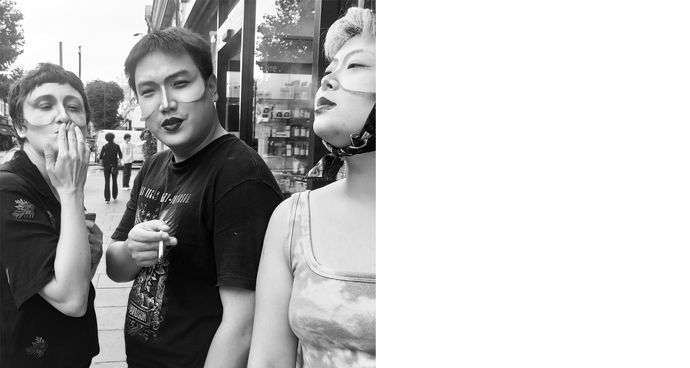
What have you been getting up to?
Over a period of six months I have been fortunate enough, under the mantle of co-writing and co-directing this work, to learn from a culture completely different from my own. I have started to understand its narratives and, therefore its actions in space, that are not related to my context. My role has been to marvel and at the same time to be the one to ask the necessary questions, the questions that have not been asked when you are the one inside the bubble.
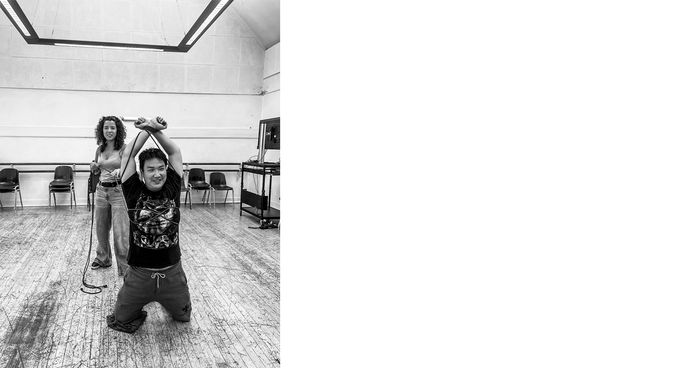
How has this related to your course work?
Applied Theatre as philosophy, understanding philosophy as a set of ideas for relating to the world, makes you constantly reflect on the implications of your practice and the ethical stakes involved. In the case of this project it required a constant questioning of queer, drag, culture, and the representations and narratives we construct around these concepts. How far an author is “allowed” to create out of her own experience has less to do with craft and more to do with politics and power dynamics, because so many minoritarian communities have been erased from the larger sphere of storytelling in our society, so many essential perspectives were still lacking. Intentionality is the key.
For example, race is a social construction. It has changed alongside history. Every day through performance in life and on stage we create, reinforce, or transform race as a concept. A physical, sensorial, affective, and reflective encounter with the world occurs during a performance. And during this, both spectators and practitioners constitute a cultural space where ideas socially fixed by a dominant “culture” are reproduced and put into dialogue with new possibilities, transforming and reinforcing the structures on which we base our relationship with the other. So, when you are working with someone else’s story, there is a risk of ‘usurpation, tokenism, stereotyping, and insensitivity’.
Therefore, during the writing sessions and then the rehearsals with actors (where I shared the directing role with Felicia), I kept asking myself: What is my contribution here? ‘Serving as a playwright and dramaturge means that one is accountable for the politics of representation’ (Kondo, 2018, p. 234). So next time when I need to determine which stories I am and am not “allowed” to tell, the answer won’t be based on if I identified myself as x.
Instead, I will concentrate on the reason I’m trying to tell a tale. If I want my work to truly contribute to shifting power dynamics in our societies, to foster solidarity, if I’m conscious of the dynamics of cultural oppression in our society, and to who I’m telling this story. As Kondo I am sceptical about ‘create completely problem-free, realistic representations of minoriatarian subjects’ at the end we ‘exist in a world and on a stage haunted by racial clichés and structural inequality’ (Kondo, 2018, p. 234), but I have discovered that ‘the platform from which an artist creates is bigger than individual self-expression’ (Cohen-Cruz, 2010, p. 195).
What has surprised you most about your experience?
At the end of the journey (which is not over yet), more than an interdisciplinary group of artists who come together to create engaging art, we have become an intercultural community. This has given us a place of belonging within a foreign context for all of us, and has also allowed us to grow and reflect under the perception or the reflection that the other, alien to our identity, gives us through love, respect and generosity, which have been the values with which we have attended to our process.
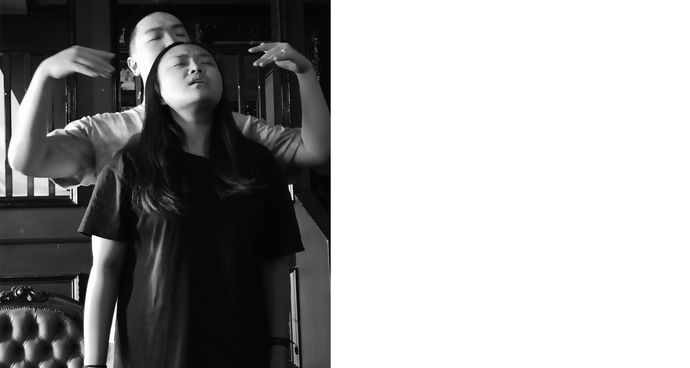
How did you find out about Central and decide to study with us?
The first time I heard about Central was because a friend of mine was going to audition for you in the city of Bogotá. I helped him write his letter for admission and when I looked at your website I realised that there was a programme for Applied Theatre, MA.
Applied Theatre was a concept I had never heard of in my country, but which had everything to do with what I had been developing throughout my artistic career. I decided that by studying at Central I could get the tools I would need to develop the programmes in a country where making art with communities is not a priority.
What are you planning to do after graduation?
For now the only certainty is that I want to continue making meaningful theatre.
To learn more about The Tana Project, you can visit @the.tana.project2022 on Instagram. Visit the Bar Soho website to book tickets for the 20-22 September performances or visit the Camden People’s Theatre website for 30 September and 1 October performances.
To keep up to date with Isabella’s work, you can check out her Instagram account, @isabella.lobe.

